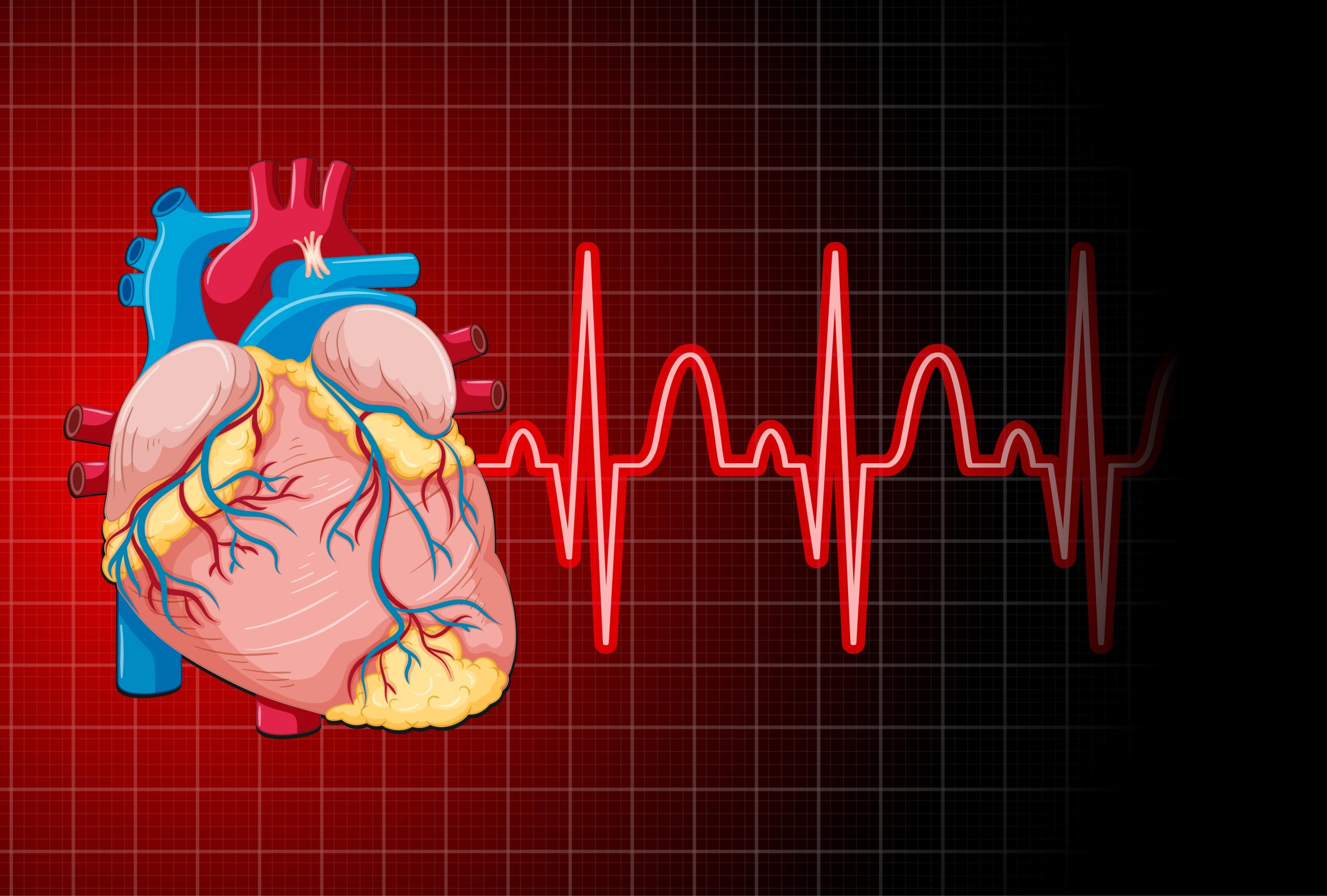Avoid heart disease with Cardiology care: A proactive approach
Avoid heart disease with Cardiology care: A proactive approach
Blog Article
Comprehending the Value of Cardiology in Modern Medical Care Providers
Cardiology plays a critical role in modern healthcare, particularly as heart problem remains to be the leading source of mortality worldwide. Advances in diagnostics and treatment have actually changed individual treatment, allowing earlier interventions and improved end results. Furthermore, the change in the direction of precautionary cardiology equips individuals to manage their wellness proactively. As innovation continues to evolve, the assimilation of ingenious services may better redefine cardiology's influence on public health and wellness, prompting a closer exam of emerging trends and their effects.
The Occurrence of Heart Problem and Its Effect On Public Wellness
Although cardiovascular disease remains the leading reason of death globally, its influence prolongs much beyond individual people to affect public wellness systems and economic climates. The high occurrence of cardiovascular disease puts a substantial stress on medical care resources, demanding enhanced financing for prevention, recovery, and treatment programs. Public wellness initiatives need to address danger variables such as weight problems, smoking cigarettes, and sedentary way of lives, which add greatly to the increasing occurrence of heart conditions.Moreover, the financial burden related to heart condition is tremendous, encompassing not only straight clinical prices but also indirect costs connected to shed performance and premature mortality. Communities deal with difficulties in taking care of these prices, often resulting in variations in health care accessibility and end results. As the populace ages and lifestyle-related threats continue to rise, the urgency for effective cardiology interventions becomes critical. As a result, dealing with heart illness is not only a matter of private health and wellness however likewise a vital public health and wellness concern.
Advancements in Cardiac Diagnostics and Imaging Techniques
Recent innovations in heart diagnostics and imaging methods have revolutionized the area of cardiology, boosting the capability to keep track of and detect cardiovascular disease. Strategies such as cardiac MRI, CT angiography, and echocardiography have ended up being progressively sophisticated, giving in-depth pictures of cardiac frameworks and functions. These methods permit the early recognition of conditions like coronary artery disease, heart failing, and valvular disorders.Moreover, developments in non-invasive diagnostics, such as wearable technology and remote surveillance gadgets, have actually equipped patients and medical care companies. These devices assist in real-time tracking of heart rhythms and various other important indicators, resulting in prompt interventions. In addition, synthetic knowledge is being integrated right into imaging analysis, enhancing accuracy and efficiency in medical diagnosis.
Innovations in Therapy Choices for Heart Issues
Current improvements in cardiology have actually caused substantial developments in treatment choices for heart disease. These include innovative surgical methods that boost procedural results and arising drugs that provide brand-new methods for therapy. As the field progresses, these technologies play an important function in boosting patient care and results.
Advanced Surgical Techniques
Technologies in surgical techniques have transformed the landscape of cardiology, supplying brand-new hope for clients with heart disease. Minimally intrusive treatments, such as catheter-based interventions, have actually considerably lowered recovery times and medical facility remains. Methods like robotic-assisted surgical procedure boost accuracy, permitting surgeons to navigate complex anatomical structures with greater accuracy. Advancements in imaging technology facilitate real-time visualization throughout treatments, boosting end results. Transcatheter aortic shutoff replacement (TAVR) exemplifies an advancement in treating aortic constriction, making it possible for shutoff replacement without open-heart surgical treatment. Additionally, hybrid approaches that combine catheter-based and medical techniques offer tailored remedies for numerous cardiac issues. These advanced medical methods not only boost person security but additionally increase treatment options, emphasizing the important function of innovation in modern-day cardiology methods.
Emerging Drugs and Therapies
As the landscape of cardiology remains to evolve, arising medications and treatments play an essential role in boosting treatment alternatives for heart disease. Innovations such as novel anticoagulants and progressed lipid-lowering agents have transformed the management of heart diseases, substantially decreasing patient morbidity and death. Additionally, the advancement of genetics therapies and regenerative medication provides encouraging avenues for dealing with problems previously deemed irreversible. Professional trials are continuously revealing the effectiveness of these treatments, pushing the borders of standard treatments. The assimilation of digital health innovations promotes customized medicine, enabling for customized therapy strategies based on genetic and lifestyle elements. Jointly, these innovations emphasize the dynamic nature of cardiology, improving client results and redefining requirements of treatment in modern-day medical care.
The Duty of Preventive Cardiology in Patient Care
Preventive cardiology plays a vital function in individual treatment by concentrating on the identification of threat variables that add to cardiovascular disease. Via way of living alteration approaches and very early discovery strategies, medical care carriers can properly lower the occurrence of cardio events - Cardiology. This positive method not only improves person end results however likewise promotes long-term wellness
Danger Aspect Identification
While cardiovascular conditions stay a leading source of morbidity and mortality worldwide, reliable danger element identification offers as a foundation of preventive cardiology. Identifying threat elements such as hypertension, family, hyperlipidemia, and diabetes mellitus background is vital for very early intervention. Healthcare experts utilize numerous screening approaches to assess these variables, permitting customized precautionary actions. Furthermore, recognizing an individual's way of living options, such as smoking cigarettes and physical inactivity, better informs threat assessments. This complete evaluation allows medical professionals to develop individualized care plans intended at mitigating threats. By focusing on risk aspect recognition, healthcare systems can improve individual outcomes and decrease the general worry of heart diseases, inevitably contributing to improved public wellness approaches and source allotment.
Way Of Life Alteration Techniques
A wide variety of researches highlights the crucial function of way of life alteration approaches in reducing cardiovascular illness danger. These methods incorporate nutritional adjustments, increased exercise, smoking cessation, and weight administration. By embracing a heart-healthy diet plan rich in fruits, vegetables, whole grains, and lean proteins, individuals can reduce cholesterol levels and blood pressure. Regular physical activity strengthens the heart and improves overall cardiovascular health. In addition, giving up smoking cigarettes substantially lowers the threat of cardiovascular disease and boosts healing rates for those with current conditions. Weight management further adds to cardio health and wellness by reducing other risk variables such as diabetes mellitus and high blood pressure. Executing these lifestyle transforms not just promotes individual health however likewise functions as a keystone of precautionary cardiology in client care.
Very Early Detection Strategies
Way of living adjustments greatly add to minimizing heart disease dangers, but they are most reliable when matched with early discovery techniques. Preventative cardiology highlights the significance of recognizing potential heart concerns before they rise into significant conditions. Strategies such as high blood pressure monitoring, cholesterol testing, and advanced imaging innovations like echocardiograms play essential duties in assessing cardio health. Biomarkers and hereditary screening likewise boost the precision of early discovery, allowing for customized preventive methods. Normal cardiac danger evaluations equip doctor to interfere proactively, potentially stopping cardiovascular disease and strokes (Cardiology). By incorporating these early detection techniques right into routine care, clients can benefit from prompt way of living interventions and targeted treatments, inevitably improving and boosting outcomes lifestyle
Integrating Innovation Into Cardiology Practices
As innovations in technology continue to reshape different fields, the combination of cutting-edge devices and systems right into cardiology practices has become vital for boosting person treatment and end results. Telemedicine systems allow cardiologists to check patients remotely, improving access to care while reducing the burden on healthcare facilities. Wearable devices, such as smartwatches, enable continuous heart price surveillance, signaling both medical professionals and people to possible concerns in real-time. Furthermore, expert system (AI) is being used to evaluate vast quantities of heart information, helping in early medical diagnosis and tailored therapy plans. Advanced imaging techniques, including 3D echocardiography, boost visualization of heart frameworks, resulting in much more precise treatments. Digital health documents (EHRs) simplify individual information management, making certain that cardiologists have instant accessibility to vital data. Together, these technical improvements are transforming cardiology, advertising aggressive administration and improved wellness results for patients with cardio conditions.
The Value of Client Education And Learning and Engagement
Individual education and learning and interaction play a crucial role in the administration of cardio health. By furnishing patients with understanding concerning their conditions, treatment choices, and way of living adjustments, health care providers equip people to take an energetic role in their care. This positive technique can lead to boosted adherence to prescribed medications, dietary adjustments, and workout regimens, ultimately decreasing the danger of complications.Engagement additionally cultivates a solid patient-provider relationship, encouraging open communication and depend on. When individuals really feel go educated and entailed, they are most likely to voice issues and ask concerns, which can cause far better scientific end results. Additionally, educational resources, such as workshops or digital platforms, can improve understanding and promote self-management methods. Generally, focusing on individual education and learning and interaction is necessary for boosting cardio health and wellness, enhancing high quality of life, and decreasing health care costs connected with cardiovascular conditions.
Future Fads in Cardiology and Their Possible Effect

Regularly Asked Inquiries
What Way Of Life Changes Can Reduce Heart Condition Danger?
The current question addresses way of living modifications that can greatly lower cardiovascular disease risk. Dr Garcia. Taking on a balanced diet, participating in regular physical task, preserving a healthy weight, handling tension, and staying clear of tobacco can especially enhance cardiovascular health and wellness
How Can I Identify Early Indications of Heart Problems?
Acknowledging early indications of heart problems includes surveillance signs such as upper body pain, lack of breath, fatigue, and irregular heart beat. Timely understanding of these signs can trigger necessary clinical assessment and intervention for far better outcomes.
What Are the Differences In Between Cardiologists and Heart Surgeons?
The differences in between cardiologists and heart surgeons depend on their roles; cardiologists mostly handle and identify heart conditions via non-invasive techniques, while heart specialists carry visit this page out surgeries to fix structural heart issues. Each plays a crucial, distinct function.

Just how Commonly Should I Get My Heart Wellness Checked?
The frequency of heart medical examination differs based upon individual threat elements. Generally, grownups need to go through assessments every one to two years, while those with present problems might call for even more regular evaluations as recommended by healthcare specialists.
What Duty Does Genetics Play in Heart Illness Risk?
Genes considerably influences heart condition threat, with familial patterns suggesting acquired conditions. Specific genetics can predispose people to hypertension, cholesterol issues, and various other cardio troubles, highlighting the importance of genetic screening in examining heart health and wellness. Heart condition stays the leading cause of death worldwide, its impact prolongs much beyond private patients to impact public wellness systems and economic climates. Public health and wellness campaigns need to resolve threat factors such as obesity, smoking cigarettes, and less active way of livings, which contribute substantially to the rising occurrence of heart conditions.Moreover, the economic concern connected with heart illness is tremendous, incorporating not only straight clinical expenses but also indirect costs connected to lost efficiency and premature death. Preventive cardiology plays a vital role in individual treatment by concentrating on the identification of risk aspects that contribute to heart disease. Synthetic knowledge (AI) and machine discovering are improving diagnostics and client tracking, making it possible for very early discovery of heart conditions. The differences between cardiologists and heart doctors exist in their functions; cardiologists mostly detect and handle heart problems through non-invasive techniques, while cardiac specialists carry out surgical procedures to deal with architectural heart issues.
Report this page